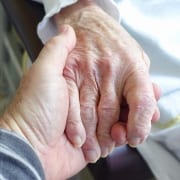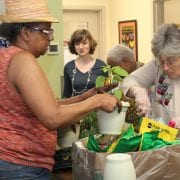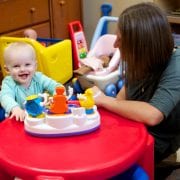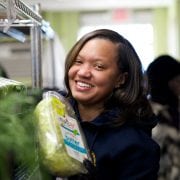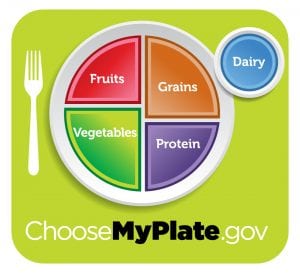Guardianship Services
/in Greene, Guardianship Services, Montgomery, Programs & Services, Senior Services, Top Level Program Category /by Andrea SkrlacGuardianship Services
Life Essentials Program
The Life Essentials guardianship program provides support for adults in Montgomery, Greene, Shelby and Miami Counties who have been deemed mentally incompetent and who do not have family willing or capable of making sound decisions for them.
Life Essentials staff and trained volunteers take on the critical role as guardian, working with their clients to ensure that each individual has the best possible life and lives in the least restrictive environment. Guardians become the advocate and voice for those who are unable to speak for themselves.
In addition to fulfilling the role of guardian, the Life Essentials guardianship program provides support to family members and/or friends who are willing and capable of becoming the guardian for a loved one.

Eligibility
Clients must have resided in Montgomery, Greene, Shelby or Miami County for at least six months, and must be deemed mentally incompetent by the Probate Court Judge or Magistrate.
Unfortunately, this program cannot serve those who have assets (home, car, bank account) and need a Guardian of Estate.
Contact
For more information, call 937.586.0545.
Location
922 W. Riverview Avenue
Dayton, Ohio 45402
Prescription Drug Cost Savings
/in Auglaize, Available To Residents, Champaign, Darke, Greene, Logan, Mercer, Miami, Montgomery, Preble, Programs & Services, Senior Services, Shelby /by Andrea SkrlacPrescription Drug Cost Savings

MEDICARE SAVINGS PROGRAM (MSP)
& LOW INCOME SUBSIDY (LIS)
Consumers receiving Medicare who have limited income and assets may qualify for Extra Help with the cost of their prescription drugs. The Social Security Administration (SSA) and Medicare work together to provide this extra help through the Low Income Subsidy (LIS) — also known as the Extra Help program.
Prescription drug costs continue to increase. The insurance maze of tiers, generic vs. non-generic, co-pays and donut holes can be confusing. Some consumers skip doses or just stop taking the medicines that their doctors recommend because they simply cannot afford them. Not taking a prescribed medicine or not taking it as directed can lead to additional health problems.
The Medicare Savings Program (MSP) and Low Income Subsidy (LIS) may be the answer for some struggling seniors.
Those who are eligible for the low income subsidy will get help paying for 75% or more of their monthly Part D premium, yearly deductible, and prescription co-payments. They will also have no gap in coverage = No Donut Hole.
Our agency can assist individuals with the application process. The application is completed electronically with the Social Security Administration (SSA).
Contact our Northern Counties office at (937) 498-4593 or (833) 289-0227 for more information.
Eligibility
This service is available to any eligible adult in our 10-county service area.
Individuals must be receiving Medicare and have limited income and assets as defined by the federal program administrators.
Please call us to see if you meet their eligibility criteria.
Contact
Contact our Northern Counties office at (937) 498-4593 or (833) 289-0227 for more information.
Location
CSSMV Northern Counties Office
100 S. Main Avenue, Suite 101
Sidney, Ohio 45365
Free Classes & Info Sessions
/in Auglaize, Available To Residents, Champaign, Darke, Greene, Logan, Mercer, Miami, Montgomery, Preble, Programs & Services, Shelby /by Andrea SkrlacFree Classes & Info Sessions
Our Family Stabilization & Support (FSS) staff coordinate an ongoing series of classes and informational sessions that are free for anyone to attend.
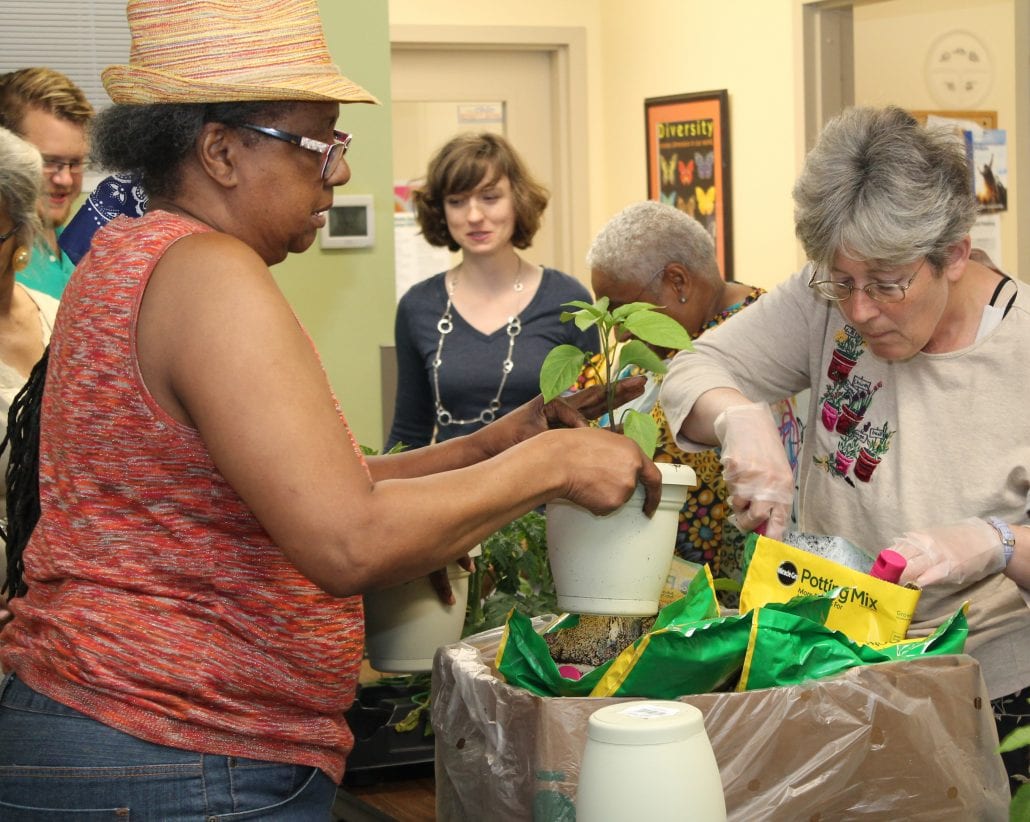 Most sessions focus on wellness and stress management, financial empowerment, health and nutrition. Some are led by CSSMV staff, while others have guest presenters from the Ohio State University Extension Office, Day Air Credit Union, and other community partners. The selection of topics is driven by the interest level of our clients and community members.
Most sessions focus on wellness and stress management, financial empowerment, health and nutrition. Some are led by CSSMV staff, while others have guest presenters from the Ohio State University Extension Office, Day Air Credit Union, and other community partners. The selection of topics is driven by the interest level of our clients and community members.
Attendance is not limited to CSSMV clients. Other agencies are welcome to share our event schedules with their own clients, and anyone from the general public is welcome to attend any session that’s of interest. We only ask that those planning to attend RSVP in advance so we can plan accordingly, and so that we can notify them of any unexpected changes in the class date or time.
Classes offered by other programs within CSSMV, such as Parenting, are also included in our class listings when they are free and open to the public.
Eligibility
There are no residency requirements; you just have to be able to get to the location where our classes are held. Some sessions require you to reserve your seat in advance.
Contact
For more information, call (937) 223-7217 ext.1135.
Location
Eckerle Administration Center
922 W. Riverview Avenue
Dayton, Ohio 45402
Post-Adoption Support Services
/in Auglaize, Available To Residents, Champaign, Darke, Greene, Logan, Mercer, Miami, Montgomery, Preble, Pregnancy & Parenting Services, Professional Counseling, Programs & Services, Shelby, Specialized Counseling /by atomicPost-Adoption Support Services
Adoption is a life-long process and each adoption is unique and special. Catholic Social Services of the Miami Valley offers post-adoption services and general adoption information, support for adoptees, and specialized support for adoptive families through our Safe Counseling program.
Whether you’re an adoptee looking for information on your birth family, you’re looking for information about how to adopt a child, or your family includes an adopted child, we have expertise to assist you. The CSSMV professional counseling program is available to adult and child adoptees and their families, and also offers special expertise in the area of attachment disorders.

CSSMV maintains records for all finalized adoptions that used our adoption placement services.
If you are an adoptee, a birth parent, or an adoptive family whose legal adoption was finalized through CSSMV, we can help you access information from your records.
For assistance, please call (937) 223-7217.
We can give you information about open, confidential, and identified adoption options, as well as explaining what to expect from both emotional and logistical/legal perspectives.
We work with Adoption Circle, a private, non-profit, Ohio-licensed adoption agency, and can also connect you to other community resources.
Catholic Social Services of the Miami Valley is pleased to be partnering with OhioKAN, a new statewide flexible and responsive Kinship and Adoption Navigator program designed to assist children, caregivers, and families. If you are interested in learning about resources that may be available to you as adoptive parents, please click HERE.
Eligibility
Our services are available to anyone seeking information or resources about adoption, as well as any birth parent, adoptee, or adoptive family whose adoption was finalized through CSSMV.
Contact
Call (937) 223-7217 ext. 2102.
Location
CSSMV Center for Families
1046 Brown Street
Dayton, Ohio 45409
Supervised Visitation
/in Assists Children, Montgomery, Supervised Visitation & Exchange, Top Level Program Category /by atomicSupervised Visitation
Erma’s House Family Visitation Center
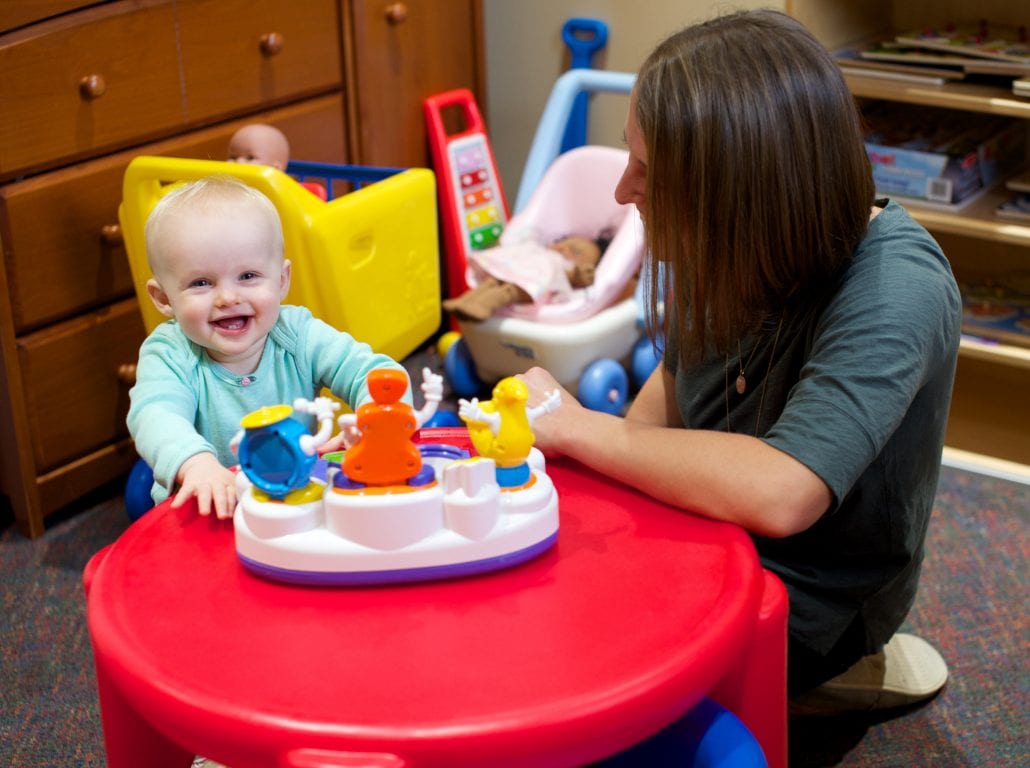
Referral and Application Forms
After going through the Council on Accreditation (COA) review process for the first time in 2017, Erma’s House was held up as “a model for other organizations.”
In a perfect world, parents would never need to have supervised visitation with their children. But sometimes, in addition to losing custody, parents are deemed — by the courts, safety net professionals, children’s services, and sometimes even by themselves — as not being in a good place to spend unsupervised time with their own children.
As these parents work to remediate their personal issues, it remains important for them to retain, and perhaps repair, their relationship with their children in a safe, monitored and judgement-free environment. In Montgomery County, Catholic Social Services’ supervised visitation program has been meeting that need since 1997 at Erma’s House Family Visitation Center.
Frequently Asked Questions
Why would someone need supervised visitation?
The need for supervised visitation may be due to issues related to divorce or separation, protection or restraining orders between parties, child abuse or neglect issues, safety concerns or other issues where a neutral setting can increase a family’s level of comfort or safety. Supervised visitation provides an opportunity for children to maintain relationships with their noncustodial parents while these issues are being resolved.
What services are available at Erma’s House?
Located just a few minutes south of downtown Dayton, Erma’s House Family Visitation Center offers a warm, friendly atmosphere where children can spend time with their noncustodial parents.
Erma’s House was created to assist families who have difficulty interacting in an appropriate, non-threatening manner. This comfortable, home-like setting is a safe, structured, neutral alternative to unsupervised visits. The facility and its “house rules” are structured to provide safety to both the children and the parents/guardians.
Supervised Visits / Parenting Time
Visits between children and their noncustodial parents are closely observed by trained visitation monitors who document activities and who will intervene, if necessary, to ensure the physical or emotional safety of the child.
Supervised Exchanges
Exchanges are for parents who do not require supervised visitation, but who need to be able to make the exchange without interacting with the other parent. The exchange is monitored by a visitation supervisor.
When are these services available?
Erma’s House hosts supervised visits on Wednesday and Thursday evenings and on Sunday afternoons. Most visits last one to two hours, and a variety of toys, games and activities are available for families’ use during visits.
Supervised exchanges are offered on Wednesday evenings, Fridays and Sundays, every other week.
The scheduling of visitations and exchanges is managed by the staff of Erma’s House, with input from the parents/guardians.
Who supervises the visits?
Erma’s House has staff, volunteers and interns who are thoroughly trained to monitor and document each visit, as well as to appropriately intervene if necessary. Their primary concern is ensuring the safety and well-being of everyone using the center.
How do families gain access to Erma’s House?
To utilize the services at Erma’s House, a family must be referred by a third party such as Montgomery County Children Services, a Court Appointed Special Advocate (CASA), a guardian ad litem (GAL), a mental health professional or social worker, or the family or criminal courts.
At least one of the parents/guardians must live in Montgomery County.
How do children benefit from supervised visitation?
It allows the children to maintain a relationship with both of their parents, something that is generally found to be an important factor in the positive adjustment to family dissolution.
It allows them to anticipate the visits without the stress of worrying about what is going to happen, and to enjoy them in a safe, comfortable environment without having to be put in the middle of their parents’ conflict and/or other problems.
How do custodial parents benefit from supervised visitation?
You do not have to communicate or have contact with a person with whom you are in conflict or by whom you might be frightened or intimidated. The arrangements can be made by a neutral party, and there does not have to be contact between the parents/guardians before, during, or after the visits.
You can relax and feel comfortable allowing your child to have contact with the other parent, and you can get some valuable time to yourself.
How do non-custodial parents benefit from supervised visitation?
You can be sure that your contact with your children does not have to be interrupted, regardless of any personal or interpersonal problems you may be having.
If allegations have been made against you, which is often the case when supervision is ordered, you can visit without fear of any new accusations because there is someone present who can verify what happened during your time together. When using a professional service like Erma’s House, you can also be assured that the supervisors are neutral and objective.
What is the history of Erma’s House?
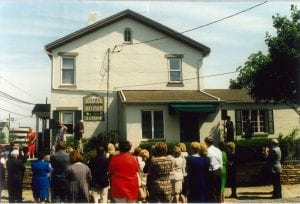
The original Erma’s House facility was next door to the current location at CSSMV’s Center for Families.
The Montgomery County Child Protection Task Force was convened in 1993 by the Board of County Commissioners in response to the community’s growing concern about child protection issues. In February of 1995, their year-long study resulted in a 90-page report titled “A Community That Supports Families and Protects Children.” Based on the 56 recommendations in the report, a Child Protection Work Group was formed and began working toward the establishment of a Family Visitation Center.
Enter Catholic Social Services of the Miami Valley. With collaboration and support from community partners such as Miami Valley Hospital, Junior League of Dayton, Montgomery County Domestic Relations Court, Dayton Municipal Court, Montgomery County Juvenile Court, Montgomery County Children Services, the Board of MRDD (now known as the Montgomery County Board of Developmental Disabilities Services), the City of Dayton, the University of Dayton, and other social service agencies, Catholic Social Services was approached to operate the new family visitation center. An advisory board from the community partners was formed to assist in developing policies and procedures, house rules, set-up details, and furnishings.
The intent was to design a program to establish a safe, home-like environment where children could visit with their non-residential parents in an atmosphere conducive to a nurturing interchange between the parent and child.
When Erma’s House Family Visitation Center opened in 1997, its home was the building on Brown Street that had housed Womanline, an organization dedicated to counseling and helping women since 1971. (Womanline had moved to a new location.) Nine years later, in August of 2006, Erma’s House relocated to the new Catholic Social Services Center for Families at 1046 Brown Street, where it operates today.
SUPERVISED VISITS AT ERMA’S HOUSE IN 2023
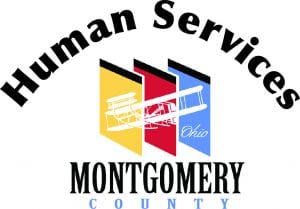
Eligibility
Families must be referred to Erma’s House by a third party such as Montgomery County Children Services, a Court Appointed Special Advocate (CASA), a guardian ad litem (GAL), a mental health professional or social worker, or the family or criminal courts. At least one of the child’s parents/guardians must live in Montgomery County.
Contact
For more information about Erma’s House, call (937) 586-9586.
Location
Erma’s House
CSSMV Center for Families
1046 Brown Street
Dayton, Ohio 45409
Pregnancy & Parenting Support
/in Assists Children, Auglaize, Champaign, Darke, Greene, Logan, Mercer, Miami, Montgomery, Preble, Programs & Services, Shelby, Top Level Program Category /by atomicPregnancy & Parenting Support
Choice Food Pantry
/in Assists Children, Family Stabilization & Success, Montgomery /by atomicChoice Food Pantry
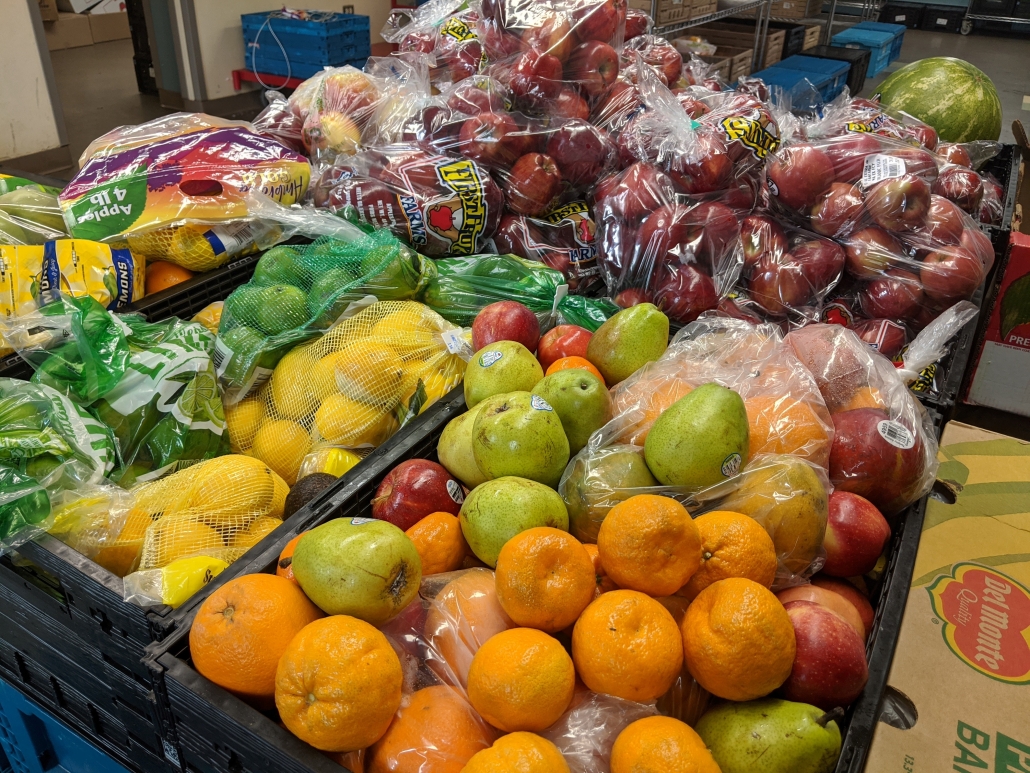
Thanks to our key partners:
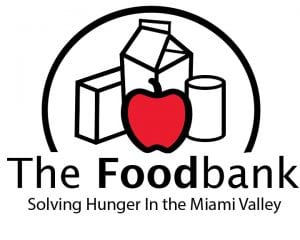
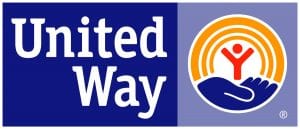
Catholic Social Services’ Choice Food Pantry is one of the busiest pantries in Montgomery County, serving residents of neighborhoods in west and northwest Dayton with especially high rates of poverty, unemployment and underemployment. Our service area includes the 45402, 45405, 45406, 45417 and 45428 zip codes. While many food pantries are only open once or twice a week, we are open Monday through Friday mornings to meet the needs of our neighbors experiencing food insecurity. (The only exceptions are major holidays and the first Friday of each month.) Pantry clients include the working poor, senior citizens, and persons with disabilities. Clients can also access the services of a case manager who can provide information and linkages to other necessary social service programs, and can also provide one-on-one case management through our Family Stabilization Services.
Frequently Asked Questions
When is the pantry open?
Our pantry is open on Monday through Friday, from 9:30 to 11:30 a.m.
We are CLOSED on the first Friday of every month, and on major holidays.
How much food do you give people?
Those who are eligible to access our pantry can receive full service once every 30 days. Based on the size of the household, we provide enough food to last for about five days. Emergency food pantries like ours are designed to supplement the food people can purchase for themselves with their own income and other benefits like SNAP.
We do also make fresh produce available on a daily basis, with no restriction on how often clients can come back for just these items.
What if I‘m homebound and can’t get to the pantry?
If you are homebound and want to designate another person to visit the pantry on your behalf, you must provide us with…
- A completed proxy form that includes a phone number where we can contact you. (Download the form HERE.) The person you designate must have the completed proxy form with them when they come to the pantry. A staff member will call to verify that the individual has your permission to pick up food for you. You can change this at any time.
- Documentation of household income below 200% of poverty level. Not sure if you meet this criterion? View the household income limits HERE.
Call (937) 223-7217 ext.1114 if you have questions about this documentation.
What if I need food, but don’t live in your service area?
Area food pantries are designated to serve residents of specific zip codes. If you live in the Dayton area and need to find a food pantry for your zip code, you can call United Way’s 24-hour “HelpLink 2-1-1” service, at (937) 225-3000.
What is a "choice" pantry?
Instead of receiving a pre-packaged box or bag of groceries from our pantry, our clients get to select the items they want based on their household size. The “choice” model respects the dignity of the client, and also helps reduce waste, as people aren’t taking home food items their families don’t like or might even be allergic to.
Where does the food come from?
 Most of the food we distribute comes to us through The Foodbank. We also receive donations from individuals, families, churches, businesses, schools and other community partners. Because we sometimes have need of items that have not come to us through these sources, we do also supplement our pantry shelves with items purchased through a wholesale source.
Most of the food we distribute comes to us through The Foodbank. We also receive donations from individuals, families, churches, businesses, schools and other community partners. Because we sometimes have need of items that have not come to us through these sources, we do also supplement our pantry shelves with items purchased through a wholesale source.
Can I volunteer in the pantry?
The Choice Food Pantry relies on many volunteers, and we’re always looking for more. We work with both individuals and groups, and volunteer service can be a one-time or ongoing opportunity. Call our volunteer coordinator at (937) 223-7217 ext.1130 for more information.
How many people does CSSMV’s pantry serve?
Here are some statistics from 2023:
- 13,405 unduplicated individuals served*
- 6,277 unduplicated families/households served*
- 26,338 full distributions
- 3,451 partial distributions (fruits & vegetables only)
*Each individual or family/household was only counted once, regardless of the number of times they were served by the pantry.
Eligibility
Eligibility requires household income below 200% of poverty level. Not sure if you qualify? View the household eligibility guidelines provided to us by the Ohio Department of Job and Family Services.
Contact
For more information about pantry services and eligibility, or if you’re interested in donating food items, please call (937) 223-7217 ext.1114.
Location
922 W. Riverview Avenue
Dayton, Ohio 45402
Pantry entrance is on the Orth Avenue side of the building.

Eckerle Administration Center
922 West Riverview Avenue
Dayton, OH 45402
(937) 223-7217 or (800) 300-2937
General email: cssmv@cssmv.org
Navigation
Latest News
- RideConnect Exceeds ExpectationsJanuary 14, 2025 - 11:53 am
Primarily funded by the Ohio Department of Transportation, our RideConnect volunteer driver program has exceeded expectations in its first three years of its existence. Starting with one driver in July 2021, the program now has 25 drivers providing rides to essential appointments, work, and other destinations. Drivers logged 93,341 miles from July 2021 to the end of September 2024, providing more than 3,000 rides and spending over 4,400 hours serving others. Volunteers are trained, use their own vehicles, and are compensated for mileage.


